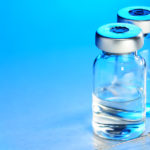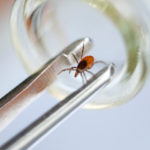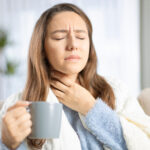January 31, 2019
An estimated one million deaths around the world could be prevented if everyone washed their hands regularly. Washing your hands helps remove harmful germs and bacteria that contribute to health problems such as diarrhea, foodborne illnesses, and respiratory infections. Therefore, washing your hands regularly enables you to stay healthy and reduces the likelihood of you or your loved ones getting sick.
How Does Washing Hands Prevent Illness?
Coughing, blowing your nose, changing diapers, and petting your dog are just some everyday behaviors that can result in germs and bacteria accumulating on your hands. If you touch your eyes, mouth, or nose after your hands become contaminated, germs can enter your body and cause illness. Washing your hands often and as needed helps eliminate these germs so you can stay healthy and avoid getting sick.
Human and animal feces are the most common source of bacteria including Salmonella and E. coli. Bacteria such as these can spread respiratory infections like adenoviruses that cause symptoms including sore throat, pink eye, and fever. Viral infections like influenza and pneumonia can spread when infected people cough or sneeze into their hands and then touch surfaces or others without first washing their hands. But washing hands can prevent the spreading of germs like these that can harm you and others.
When Should You Wash Your Hands?
Ideally, you should wash your hands immediately after coming into contact with objects and surfaces that are potentially contaminated, such as toilets, garbage cans, and animals. Washing your hands is also essential after touching surfaces in public that are frequently touched by others, such as stair railings, door handles, elevator buttons, and shopping carts.
Here are other crucial times to wash your hands:
- Before eating food
- Before, during, and after preparing food
- After coughing, sneezing, or blowing your nose
- Before and after caring for those who are sick
- Before and after treating cuts and wounds
- After touching animal waste and animal food
- After changing diapers
Take extra care to keep your hands clean when using restrooms, since germs and bacteria are most commonly spread through feces. Even though you may wash your hands immediately after using the toilet, your hands can become contaminated again upon touching doorknobs and door handles when leaving the restroom. Whenever possible, try leaving the restroom by nudging the main door open with your foot or by covering your hand with a paper towel when touching the doorknob or handle.
What’s the Best Way to Wash Your Hands?
To properly wash your hands, you need clean running water and soap. Plain soap is recommended for use at home and in public non-healthcare settings since antibacterial soaps are not any more effective than plain soap for killing germs and bacteria.
In situations where clean running water and soap aren’t available, use an alcohol-based hand sanitizer that contains at least 60 percent alcohol. Though hand sanitizers may help reduce some germs and bacteria, keep in mind these products do not effectively eliminate all types of germs.
To wash your hands, first, wet your hands with clean running water and apply soap. Use the soap to lather your hands, including the backs of your hands, between your fingers, and under your nails. Scrub your hands for at least 20 seconds, then rinse your hands under clean, running water. Lastly, dry your hands completely using a clean towel or air dryer.
Reduce Your Risk for Illness Today
Washing your hands can reduce deaths caused by diarrheal diseases by up to 50 percent as well as the risk of respiratory infections by 16 percent. If you or your loved ones are getting sick frequently, start washing your hands regularly to reduce the risk for future illnesses.
Healthcare Associates of Texas offer a range of primary care services including vaccinations and treatments for infectious diseases. Request an appointment today or contact us at (972) 258-7499 to begin the treatment process.
References:
https://www.cdc.gov/healthywater/hygiene/fast_facts.html
https://www.cdc.gov/handwashing/when-how-handwashing.html
https://www.cdc.gov/features/handwashing/index.html
https://www.cdc.gov/handwashing/why-handwashing.html
https://www.fda.gov/ForConsumers/ConsumerUpdates/ucm378393.htm
DISCLAIMER
The information featured in this site is general in nature. The site provides health information designed to complement your personal health management. It does not provide medical advice or health services and is not meant to replace professional advice or imply coverage of specific clinical services or products. The inclusion of links to other web sites does not imply any endorsement of the material on such websites.



